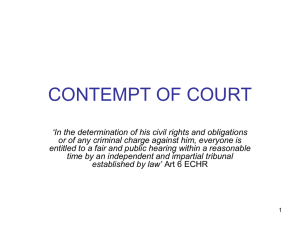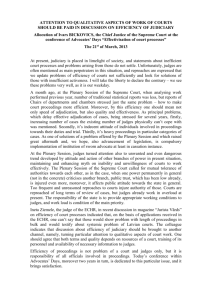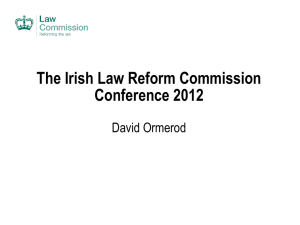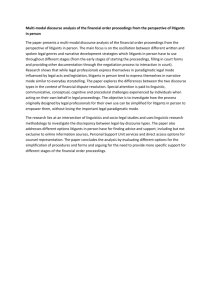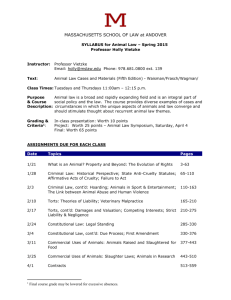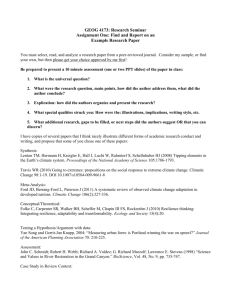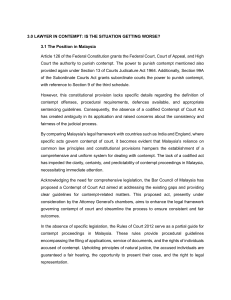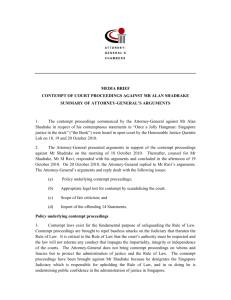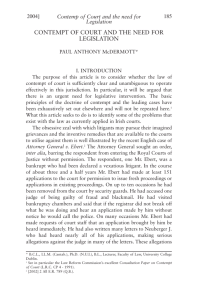Rethinking Opportunity: Younger Abstention, The Civil Rights
advertisement
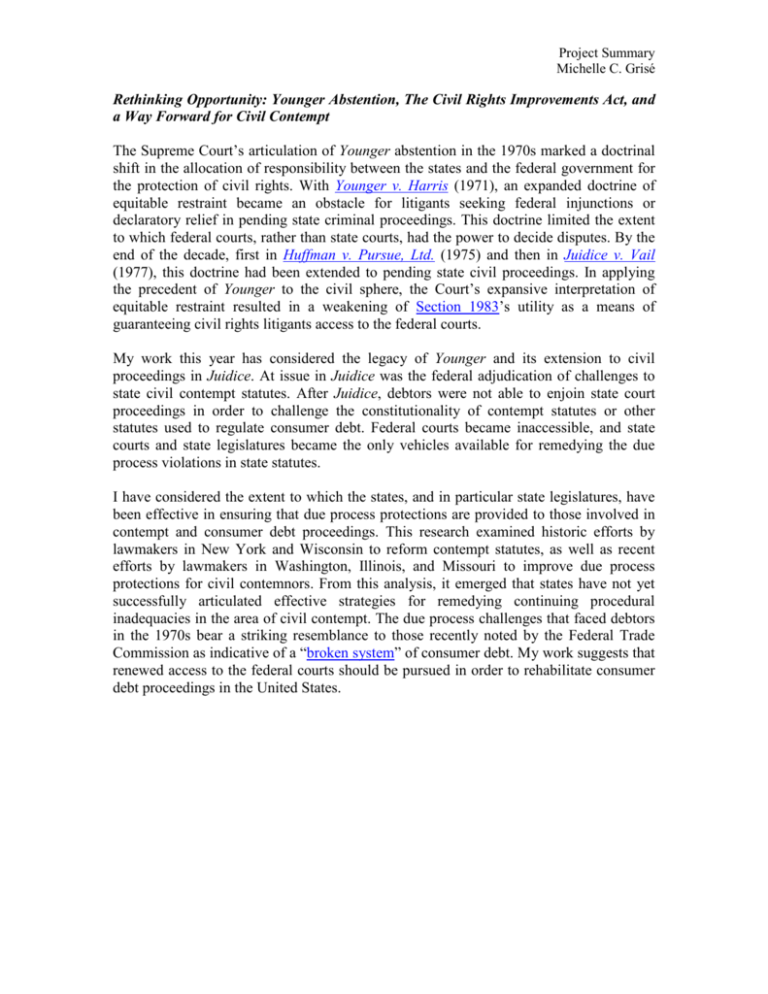
Project Summary Michelle C. Grisé Rethinking Opportunity: Younger Abstention, The Civil Rights Improvements Act, and a Way Forward for Civil Contempt The Supreme Court’s articulation of Younger abstention in the 1970s marked a doctrinal shift in the allocation of responsibility between the states and the federal government for the protection of civil rights. With Younger v. Harris (1971), an expanded doctrine of equitable restraint became an obstacle for litigants seeking federal injunctions or declaratory relief in pending state criminal proceedings. This doctrine limited the extent to which federal courts, rather than state courts, had the power to decide disputes. By the end of the decade, first in Huffman v. Pursue, Ltd. (1975) and then in Juidice v. Vail (1977), this doctrine had been extended to pending state civil proceedings. In applying the precedent of Younger to the civil sphere, the Court’s expansive interpretation of equitable restraint resulted in a weakening of Section 1983’s utility as a means of guaranteeing civil rights litigants access to the federal courts. My work this year has considered the legacy of Younger and its extension to civil proceedings in Juidice. At issue in Juidice was the federal adjudication of challenges to state civil contempt statutes. After Juidice, debtors were not able to enjoin state court proceedings in order to challenge the constitutionality of contempt statutes or other statutes used to regulate consumer debt. Federal courts became inaccessible, and state courts and state legislatures became the only vehicles available for remedying the due process violations in state statutes. I have considered the extent to which the states, and in particular state legislatures, have been effective in ensuring that due process protections are provided to those involved in contempt and consumer debt proceedings. This research examined historic efforts by lawmakers in New York and Wisconsin to reform contempt statutes, as well as recent efforts by lawmakers in Washington, Illinois, and Missouri to improve due process protections for civil contemnors. From this analysis, it emerged that states have not yet successfully articulated effective strategies for remedying continuing procedural inadequacies in the area of civil contempt. The due process challenges that faced debtors in the 1970s bear a striking resemblance to those recently noted by the Federal Trade Commission as indicative of a “broken system” of consumer debt. My work suggests that renewed access to the federal courts should be pursued in order to rehabilitate consumer debt proceedings in the United States.

